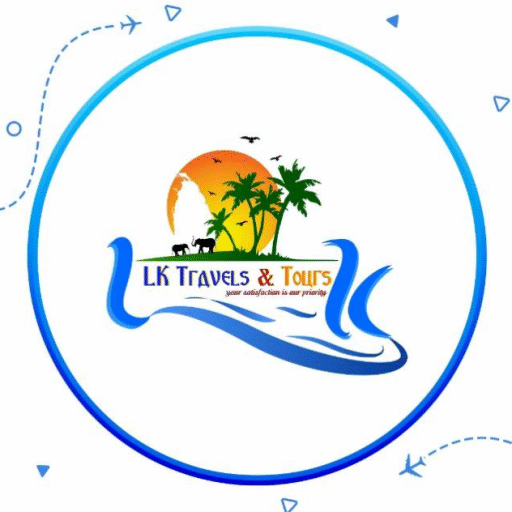FAQs
Do I need a visa to enter Sri Lanka?
Yes, most travelers will need a visa to enter Sri Lanka. For short stays related to tourism, business, or transit, you can apply for an Electronic Travel Authorization (ETA) online before your trip. The ETA is a straightforward process and can be obtained through the official Sri Lanka ETA website.
You can apply for the ETA here: Sri Lanka ETA Official Website
What is an Electronic Travel Authorization (ETA)?
The Electronic Travel Authorization (ETA) is an official authorisation for a short visit to Sri Lanka and it can be applied for online. The issuing authority of the ETA is the Department of Immigration & Emigration, Colombo, Sri Lanka. The ETA is initially limited to a validity of 30 days. However, it may be extended for up to six months.
How much does the ETA cost?
A comprehensive list of ETA processing fees can be obtained from the ETA website.
How do I apply for the ETA?
You can submit the ETA application online through the ETA website. Select the language, click ‘Apply’ and follow the instructions.
You can also use one of the following options to apply:
- Through a third party
- Through registered agents
- At Sri Lanka Overseas Missions
- At the head office of the Department of Immigration and Emigration (DI&E), Colombo
- On arrival at the port of entry in Sri Lanka
My holiday is over 30 days, how can I obtain an extension to my visa?
You can submit the ETA application online through the ETA website. Select the language, click ‘Apply’ and follow the instructions.
You can also use one of the following options to apply:
- Through a third party
- Through registered agents
- At Sri Lanka Overseas Missions
- At the head office of the Department of Immigration and Emigration (DI&E), Colombo
- On arrival at the port of entry in Sri Lanka
What is the best time of year to visit Sri Lanka?
Sri Lanka is a great year-round destination with two monsoons affecting different regions at different times.
December to April -Down south.
May to September -East Coast.
What language will people understand in Sri Lanka?
Sinhalese and Tamil are the official languages of Sri Lanka, with the majority of Sri Lankans speaking primarily Sinhalese. English is generally understood and spoken by many, especially in the cities. There are some tour operators who can provide guides and translators in German, French, Spanish, Italian, Japanese and Chinese to visitors who require assistance.
How are the telecommunication facilities in Sri Lanka?
Most of the island offers good coverage from telecommunication providers, ensuring you’ll generally have connectivity wherever you travel. However, if you plan to explore extremely remote or uninhabited regions, don’t count on having network access. For the best experience, consider purchasing a local SIM card and data plan during your visit. Several mobile network operators, such as Dialog, Mobitel, Airtel, and Hutch, provide a variety of affordable options. To avoid compatibility issues, ensure your phone is unlocked and supports dual-band frequencies.
What is the country code?
Sri Lanka’s country code is 94, (E.g. If you need to call a number in Colombo, dial +94 11 2XXXXXX). If you are calling a mobile number, you dial the number after the country code (E.g. dialling a Dialog number, dial +94 77X XXXXXX).
What mobile technology is supported in Sri Lanka?
Latest Technology : 5G is the newest mobile technology available in Sri Lanka, with Dialog Axiata leading the way as the first operator to launch commercial 5G services.
Dialog is Best : Dialog Axiata is considered the best operator in Sri Lanka, offering the most advanced network, including 4G LTE and 5G , with the widest coverage and fastest speeds.
Is there internet access in the country?
It is very likely that the hotel you are staying in will have free internet access. Smaller properties may limit usage, but you may be able to pay for more data. Internet connectivity in smaller towns and more remote areas may be slower.
What safety precautions must I take when travelling?
As with any destination, you need to take precautions to safeguard your belongings when travelling in Sri Lanka. It is advisable to lock your valuables in the hotel safety locker (usually available in all rooms). Do not leave your belongings unattended on the beach or any other public spaces. If you are travelling by public transport, ensure that your bags are locked and that you take your belongings with you when you disembark. There is no guarantee that you will be able to recover any belongings left behind on a public bus or train.
What health issues should I be concerned with?
Sri Lanka boasts a state-run healthcare system that is highly regarded and serves as a model for many neighboring countries. While all cities have government-operated hospitals, not all of them are equipped with emergency medical facilities. In critical situations, patients may need to be transferred to larger hospitals in major cities for advanced care. Additionally, there are several privately run hospitals that offer quality medical services. It’s strongly recommended to secure comprehensive health or travel insurance before your trip to ensure you’re covered in case of any medical emergencies.
The country also faces challenges with mosquito-borne diseases such as dengue, chikungunya, and malaria, which are prevalent in various regions. To protect yourself, it’s wise to use effective mosquito repellents, which are readily available at local supermarkets. Taking preventive measures against mosquito bites is essential to safeguard your health during your stay.
Do I need to worry about mosquitoes and other pests?
Most hotels in Sri Lanka provide plug-in mosquito repellents, which are typically activated during the evening turndown service. However, mosquito nets are rarely available in hotels, so if you’re sensitive to insect bites, it’s a good idea to apply mosquito repellent lotion, especially if you plan to spend time outdoors. In case you forget to bring your own, you can easily purchase effective repellents from local supermarkets or pharmacies.
If you’re planning outdoor activities like trekking or hiking in the mountains or rainforests, leeches are a common concern. As a precaution, carry a pair of leech socks to protect yourself. If a leech attaches to your skin, avoid pulling it off forcefully. Instead, wait for it to detach naturally, or apply salt or soap to the area to encourage it to release its grip.
In case of discomfort such as itching or redness from insect bites, visit a pharmacy to purchase an over-the-counter topical medication to alleviate the symptoms. If the irritation persists or worsens, it’s advisable to seek medical attention for further care. Taking these precautions will help ensure a more comfortable and enjoyable experience during your travels.
What food will I find?
Sri Lanka has a great cuisine which includes rice, bread, vegetables, fruits, fish and meat. The island’s culinary scene is a great example of the wide variety of cultures that have influenced Sri Lankan society. Traditional Sri Lankan food may be rather spicy, so be mindful to always request for less spice in your food. If you are not adventurous with your gastronomic experiences, you can opt for international dining options, which are available in all major hotels and restaurants. Don’t be afraid to ask for your preference, as people are generally willing to accommodate your needs. A number of popular fast food franchises can be found in the larger cities.
Always ask for bottled mineral water. If you are carrying your own reusable water bottle, you can ask your hotel to refill it with filtered water.
Can I find vegetarian food?
Many of the larger hotels and restaurants have a vegetarian section in their menus. Smaller local food shops will also provide vegetarian meals if you request it. There are a number of South Indian style vegetarian restaurants in more urban areas that serve 100% vegetarian fare.
What is the currency used in Sri Lanka?
The currency used in Sri Lanka is the Rupee (Rs.) and it is divided into 100 cents. Notes come in denominations of 20, 50, 100, 500, 1000 & 5000. Coins come in denominations of 1, 2, 5 & 10.
Some larger hotels may accept US$ / Euro, but this is not common.
Can I use credit cards?
Many local establishments accept credit cards. The most widely used card types are Visa and Mastercard. Amex is used at select establishments.
Are ATMs widely available and do they issue cash against my debit/credit card?
ATMs are widely available in the main cities. You can use your Visa and Mastercard to withdraw cash from local ATMs. However, make sure you have informed your bank that you will be using your card in Sri Lanka for cash withdrawals.


